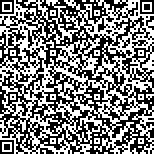| 引用本文: | 金雪,叶寒青,陈炎,张国兵,寿张轩.基于优化药房功能模块提升药事管理水平的研究[J].中国现代应用药学,2019,36(15):1972-1975. |
| JIN Xue,YE Hanqing,CHEN Yan,ZHANG Guobing,SHOU Zhangxuan.Improved Pharmaceutical Administration Through Optimization of Pharmacy Function Modules[J].Chin J Mod Appl Pharm(中国现代应用药学),2019,36(15):1972-1975. |
|
| 本文已被:浏览 2816次 下载 1196次 |

码上扫一扫! |
|
|
| 基于优化药房功能模块提升药事管理水平的研究 |
|
金雪1, 叶寒青1, 陈炎2, 张国兵1, 寿张轩1
|
|
1.浙江省人民医院, 杭州医学院附属人民医院, 药学部, 杭州 310014;2.浙江省人民医院, 杭州医学院附属人民医院, 信息中心, 杭州 310014
|
|
| 摘要: |
| 目的 借助医院信息系统切换升级,通过优化住院药房功能模块,提升药事管理的水平。方法 基于新医院信息系统设置库存/下限和库存/消耗量比,优化住院药房药品有效期和供应状态的记录、查询功能,对供应状态异常和新药规格管理/库存定义进行自动提醒,新增限用药品控制界面,并预先设定药品安全用药相关参数(常用或禁止给药途径、默认给药频次、最高单次/日剂量、最大使用天数等)。结果 通过采取上述措施,住院药房每周非计划药品领用次数由(4.2±1.2)次减少到(2.5±0.6)次,药品周转天数由(8.4±0.4)d下降到(7.4±0.6)d,登记的不合理医嘱由每月(22.2±3.2)条下降到(5.3±1.1)条,有效改进了药品领用、效期和供应管理的质量,提高了药师的工作效率。结论 基于医院信息系统切换,升级优化住院药房功能模块设计,可提升药事管理的水平,为患者安全用药提供有力的保障。 |
| 关键词: 医院信息系统 住院药房 功能模块 优化 药事管理 |
| DOI:10.13748/j.cnki.issn1007-7693.2019.15.024 |
| 分类号:R954 |
| 基金项目: |
|
| Improved Pharmaceutical Administration Through Optimization of Pharmacy Function Modules |
|
JIN Xue1, YE Hanqing1, CHEN Yan2, ZHANG Guobing1, SHOU Zhangxuan1
|
|
1.Zhejiang Provincial People's Hospital, People's Hospital of Hangzhou Medical College, Department of Pharmaceutical Sciences, Hangzhou 310014, China;2.Zhejiang Provincial People's Hospital, People's Hospital of Hangzhou Medical College, Information Center, Hangzhou 310014, China
|
| Abstract: |
| OBJECTIVE To improve pharmaceutical administration through optimizing and developing functional modules of inpatient pharmacy based on a new hospital information system(HIS). METHODS A series of measures were put into effect to optimize inpatient pharmacy function modules, including to compute ratios for drug inventory/lower limit and inventory/consumption, upgrade features for recording and querying of drug validity and availability, provide alerts for configuring prescription specifications/inventory definitions for new drugs and addressing abnormal drug availability status, develop an interface to manage drugs purchased for specific patients, and preset parameters in relation to safe medication, such as prohibited or most frequently used routes, frequencies, highest single/daily dose, maximum usage days, and so on. RESULTS By implementation of the above-mentioned measures, the number of unplanned drug requisition per week was decreased from (4.2±1.2) to (2.5±0.6), drug turnover day cut down from (8.4±0.4)d to (7.4±0.6)d, number of recorded irrational medical order per month reduced from (22.2±3.2) to (5.3±1.1), managerial quality in drug requisition, valid date and availability improved, and the working efficiency of pharmacists enhanced effectively. CONCLUSION Optimization and development of inpatient pharmacy function modules based on the new hospital information system can improve pharmaceutical administration and provide guarantee for medicinal treatment of patients. |
| Key words: hospital information system inpatient pharmacy function module optimization pharmaceutical administration |
